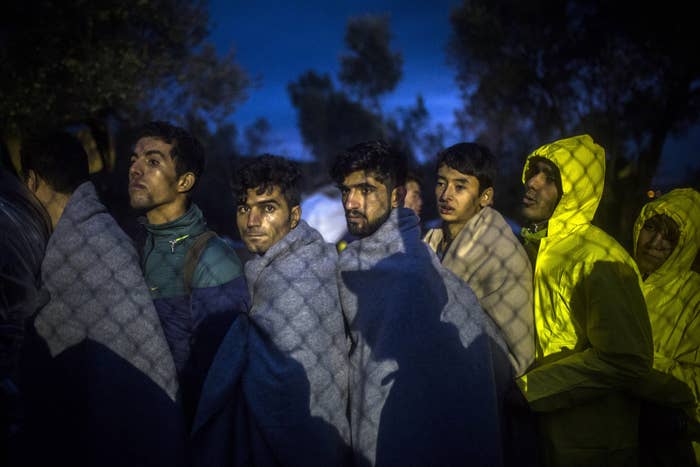
WASHINGTON -- The U.S. government is using a secret national security screening program to vet certain incoming refugees, including those from Syria, according to an administration document obtained by BuzzFeed News.
The program, the Controlled Application Review and Resolution Process, or CARRP, was known to be used by the U.S. Customs and Immigrations Service to vet prospective American citizens. The secret agency operation is a rigorous process used to screen immigrants who for a broad variety of reasons are deemed potential national security threats. In 2013, the American Civil Liberties Union accused the program of disproportionately targeting immigrants from Muslim-majority countries. According to an internal U.S. Citizenship and Immigration Services document provided to Congress by the White House and obtained by BuzzFeed, the administration is also using that program to vet refugees coming into the country.
The White House has been forced to defend its refugee screening processes in the days following last week’s devastating terror attack in Paris, which took the lives of 129 people. The attack, for which ISIS has claimed credit, has led the governors of 31 states to say they would suspend resettlement of Syrian refugees, following concern that ISIS-trained terrorists could sneak in among them. The administration has laid out its security processes in recent days, but has not mentioned CARRP.
“The CARRP program is a little bit of a dark shadow,” said Betsy Fisher, deputy policy advisor and staff attorney for the International Refugee Assistance Project. “We’re told that sometimes when [a refugee case is] on hold, it’s for a CARRP check.”
Incoming refugees are already subject to rigorous background and security checks. The screenings involve multiple interagency screenings from several different databases, pulling information from every agency from Interpol to the Treasury Department. If during any of these security checks an individual is found to pose a potential national security threat, their case is then routed through the separate CARRP vetting channel.
“If any of the above security and background checks, or any background check performed at any time during the adjudication of any benefit to include testimony gleaned during the interview, reveal associated national security (NS) concerns, then the case undergoes a focused national security CARRP review,” the document says, referring to the previous three pages of security check information.
The CARRP program began as a covert agency operation in 2008. An extensive report by the American Civil Liberties Union revealed that the CARRP process disproportionately targeted citizenship applicants from Muslim-majority countries, including the Middle East and North Africa regions.
CARRP defines a national security threat “an individual or organization [that] has been determined to have an articulable link to prior, current, or planned involvement in, or association with, an activity, individual or organization described in [the security and terrorism sections]35 of the Immigration and Nationality Act.”
The criteria that can render an applicant subject to the CARRP process, though, is fairly broad, and critics, including the ACLU, have said it can hamstring the naturalization process for those stuck in its separate track.
CARRP’s categories of national security threats, the ACLU wrote in its 2013 report, “cast extremely wide nets, rely on discriminatory profiling, and yield imprecise, inaccurate, and often absurd results that disproportionately impact [Arab, Middle Eastern, Muslim and South Asian] applicants.”
News of CARRP’s use in refugee screenings comes as debate over U.S. resettlement policy reaches a fever pitch. Several governors and lawmakers have questioned whether the U.S. has the resources to properly vet and screen refugees from that region.
CARRP’s use in the vetting process adds one more security screening measure to a process already laden with background and security screenings. The policy document obtained by BuzzFeed details the extensive databases used to screen prospective refugees. Among other things, they include checks against FBI fingerprint databases, Defense Department databases on conflict zones and State Department systems.
“Our view of the security process is that it’s good to have rigorous checks and different kinds of checks as long as they're not redundant and don’t affect the humanitarian nature of the program,” Fisher said.
